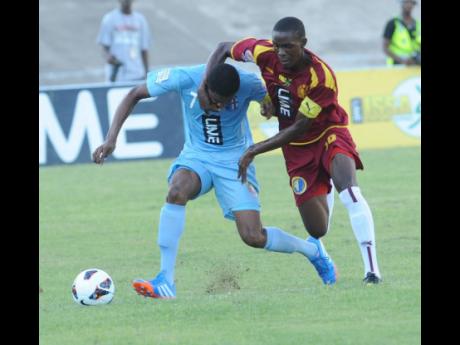GLEANER: As a new school year approaches, the Ministry of Education, Youth and Information remains committed to its primary goal of providing formal education to all students. The ministry is also concerned, however, about the holistic development of all students through spiritual, physical, social and cultural activities. This is done through the curriculum and in the co-curricular activities in schools.
To ensure students performing in physical activities or contact are aware of best practices associated with each activity, the ministry has provided guidelines to ensure that physical education (PE) teachers, school activity directors, and other relevant staff are equipped with basic information for the development of programmes from early childhood to grade 12, and also at the tertiary level.
The aim is to ensure that students participate in physical activities complemented by a physical education curriculum without discrimination or prejudice. These activities are supported by qualified teachers of physical education and trained coaches.
Schools are also required to meet standards as prescribed by relevant governing bodies, the Primary Sports Association and the Jamaica Independent Schools Sports Association (JISSA), among others.
REQUISITE SKILLS
Staff must have requisite skills to ensure that students are safe during these activities. These skills range from, but not limited to: understanding cognitive, psychosocial and psychomotor development of young people, knowledgeable on matters of training principles, knowledgeable on rules of governing sport activities, and, most important, sports safety requirements and first aid.
Critical to the development of all sports-related activities is properly working facilities and equipment. The Ministry of Education has provided basic guidelines governing all areas where sports-related and physical activities are housed, whether indoors or outdoors. These guidelines include adequate facilities to meet the needs, interest, and number of students, relevant personnel to ensure equipment is inspected, the provision of needed gear and the removal of equipment where unfit to use.
The following guidelines have been shared with schools to promote participation:
– All stakeholders must be aware of established procedures for accident and injury prevention.
– Trained professionals must be on all locations to offer first aid, as well as licensed and insured vehicles.
– During recreational sports, the selected venues must be close to a hospital, and of course, all students must be supervised.
– The readiness of participants in activities is of high priority based on age, skill and their physical condition. All participants must be cleared by a medical doctor and deemed healthy on a periodic basis, especially during peak periods, inclusive of Boys and Girls’ Champs, and Manning and DaCosta Cup competitions.
The ministry is urging open dialogue between schools and parents or guardians to ensure there is consent before participation, and also in the event of any medical emergency.
– Another aspect requiring attention is that of diet and nutrition. Jamaica prides itself as a nation of great athletes and, as such, we have provided schools with guidelines on this important matter. All staff, students, and caregivers must be educated about the dangers of substance abuse, proper nutrition, and extreme weight-control practices.
Staff should inform students about the benefits of maintaining a healthy diet, including the promotion of healthy muscle and optimal performance. This is also important in a student’s diet plan. Substance abuse impairs the normal function of the human body, increases the chance of injury and decreases the reaction time of participants. Stimulants are readily available on the market and can lead to health hazards. These should be avoided at all times.
– Stakeholders should ensure students are performing academically and are uncompromised by involvement in sports or co-curricular activities. To achieve this feat, all schools must comply with the current ISSA requirement where a student is required to maintain an 80 per cent attendance record and grades not below 45 per cent in at least four subjects to be eligible for participation in ISSA-related events.
In order to deter the practice of ‘buying athletes’, we have partnered with ISSA to ensure athletes transferred are not for economic gain on the part of any stakeholders. All students seeking a transfer must follow the procedure as outlined by the Ministry of Education, Youth and Information.
For further information please visit our website at www.moey.gov.jm.
– Article courtesy Ministry of Education, Youth and Information
CAPTION: St George’s College and Wolmer’s Boys in Manning Cup semi-finals at the National Stadium in 2013.


